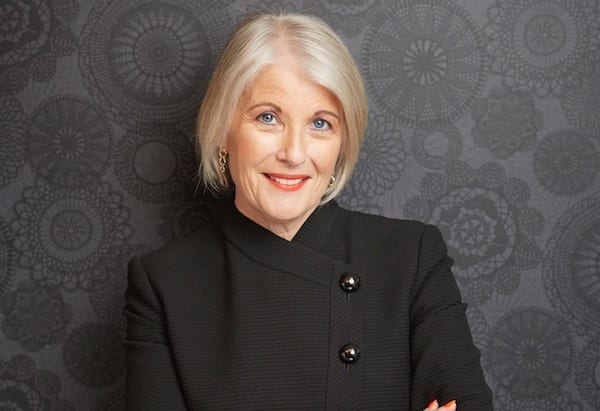In a wide ranging interview with Women’s Agenda, Lyons also spoke about the role of men working flexibly in the push for workplace gender equality.
“Men fear that by more women participating in work, that what they earn or what they do, becomes less,” Lyons said. “It’s actually the opposite, the pie gets bigger.”
The push for gender equality in Australian workplaces is increasingly driving debate on social media, particularly when it comes to what’s fair in a somewhat unequal playing field.
Lyons, whose role is to drive change on gender diversity and data collection for Australia, says fear is playing a role in holding back the pace of progress.
“What we need is that level playing field for us all to have equal choice and that’s what we don’t have at the moment,” she said
“We are a society that has been patriarchal and we have for generation upon generation relied upon men to be the bread winners.
“Women want to help shoulder that responsibility.
“We need to understand that in [men] giving up any responsibility and giving up something that [they] have grown up with and that [they] believe was something that [they] had to do, is hard to relinquish.
“What men must understand is that by women wanting a career, it actually makes the pie grow bigger, not smaller.
“That is of benefit, not just to me, not just to my family but to the community and to the economy as a whole.”
Over the past five years, the pay gap as reported by WGEA has fallen year-on-year, as its collection of data from 11,000 private sector companies with more than 100 employees creates competitive tension and some progress on gender diversity.
But that progress isn’t happening at a national level. The pay gap has hovered between 15% to 20% for over two decades, as measured by Australian Bureau of Statistics data and as reported by the Financy Women’s Index.
Flexible work needed
Lyons says that to achieve gender equality, employers need to be more supportive of men who want to work flexibly.
She also said that WGEA is watching with interest to see what change, if any, occurs in the United Kingdom which recently introduced mandatory reporting, and a harder line stance through the naming and shaming of companies who report on their gender pay gap data.
According to WGEA’s data, around 70 per cent of Australian workplaces offer some form of flexible work.
But it’s mostly women who take up those flexible opportunities due largely to the fact they they’re more likely to care for loved ones outside of traditional in-office work hours.
“Women work flexibly at more than three times the rate of men,” said Lyons. “The key here is getting more men to work flexibly.”
Lyons believes that we need to see employers putting targets in place on the take up of men working flexibly.
“If we know that the normalisation of working flexibly means we will see more women in leadership, then it goes without saying that we need to start seeing more men embracing working flexibly,” she said.
“We know that they [men] want to [work flexibly] but we know also that when a man puts in an application to work flexibly that they are twice as likely to be rejected as a woman. That’s not good.”
Lyons said putting targets in place on flexible work will help ensure men get a better deal — which will consequently see women given greater opportunities to have flexible careers.
Work in the home
Currently, it’s estimated that women are putting in significantly more unpaid work at home than men.
Lyons says we need to shift the balance.
“We need men to take a greater role in that, but we have to help them get there too,” she said.
But sometimes men can feel judged for needing to be away from work to take a greater role in family life, said Lyons.
“If they want to leave work early three days a week to take pick up the children from school or take their elderly relative to medical appointments, they feel like they are being judged and they are being told they are not taking their career seriously. That’s nonsense,” she said.
“In order to get anywhere in this journey, we need men with us. This is not a women’s issue, this is an issue for all of us. This is an issue for the economic betterment of everybody.
“This is not something that women can achieve by themselves.”


